A specific shade of retina-singeing chartreuse has become the defining color of summer 2024. Similar to the text message bubble sent from your iPhone, the vivid hue sits somewhere between 360 and 375 on the Pantone color chart. It is, of course, Brat green.
Now synonymous with British pop star Charli XCX’s chart-topping studio album, the cultural influence of “Brat” green knows no bounds. Last week, the official X account of the New York City Metropolitan Transportation Authority alerted commuters of train repairs using a “Brat” green graphic. 65-year-old Golden Globe-winning actor Kyle McLachlan posted an “unofficial music video” of himself lip syncing to a track from the album in a fluorescent green shirt.
It has even crept into Vice President Kamala Harris’ universe. After President Joe Biden announced he would no longer be seeking re-election and instead endorsing Kamala Harris, Charli XCX took to X to offer her own seal of approval, proclaiming: “kamala IS brat.” Memes swiftly followed, as well as impossibly fast t-shirts with Harris’ name printed in the style of the “Brat” album cover.?Even the Vice President’s official rapid response account on X, @kamalahq, is now topped with a “Brat” style banner.
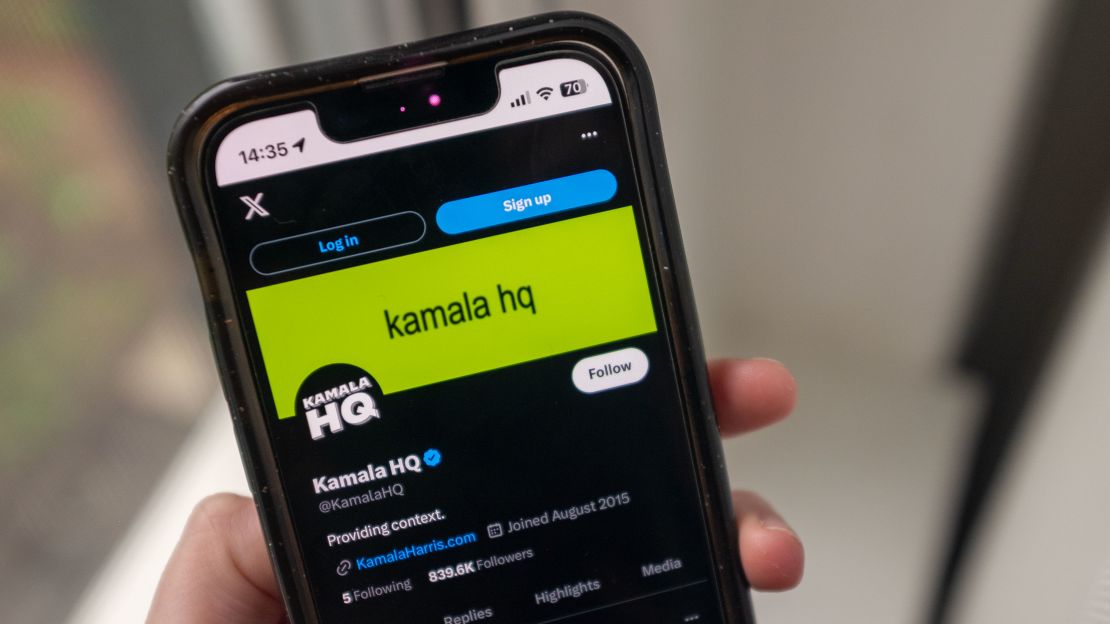
Brat girl summer
The hashtag #Bratsummer has been tagged in over 40,000 videos on TikTok and 12,000 posts on Instagram. The term has also been on a steady incline worldwide, according to Google Trends, since the first week of June. Google even predicts searches for “Brat summer” will reach their maximum popularity this week.
The term “Brat girl summer” can be understood best as a battle cry — uniting all hedonists, fun-lovers and “365 Party Girls.” Last month, Charli XCX outlined the ingredients for a Brat girl summer to the BBC, citing “a pack of cigs, a Bic lighter and a strappy white top with no bra.” Some might consider Kamala Harris becoming the first Black woman and first Asian American to lead a major party ticket as Brat, because it’s boundary-breaking, feminine and intersectional. At its core, embracing Brat culture is about messy, imperfect self-acceptance — and it’s the easiest way right now to engage the under-30 demographic.
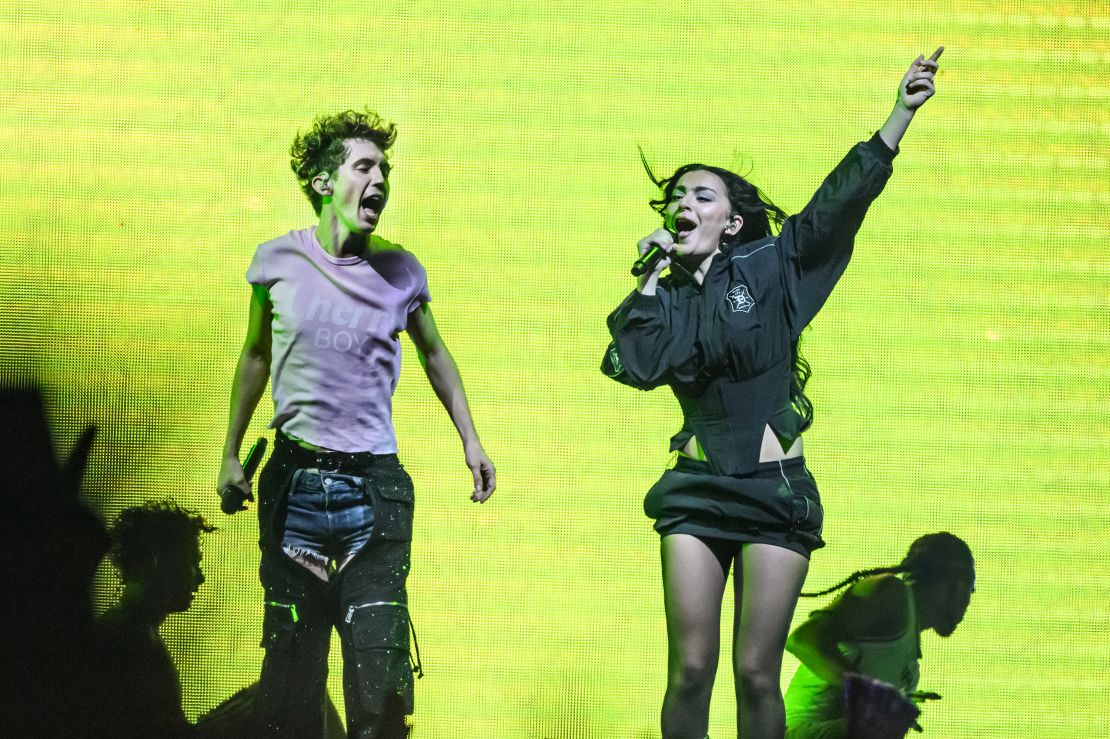
As a result, the past weeks have become awash with lurid green, and fast. “It used to be that brands picked a color, but then it would be years before somebody associates that color with your brand,” said Sunita Yeomans, leader of the Graphic Branding and Identity course at London College of Communication, in a video interview. Yeoman believes Charli XCX has managed to fast-track the process with “spectacular” success. She recently noticed a colleague was inadvertently wearing Brat green during an art gallery board meeting. “I thought, ‘Oh my God, she doesn’t even realize she’s wearing that color.’ It got me thinking about when people don’t even realize that they’re endorsing (something).”
This isn’t the first summer to have been color-coded by pop culture, either; it’s the second in a row. Last year, moviegoers worldwide sported Barbie pink looks to see Greta Gerwig’s record-smashing “Barbie” film, and it also hit red carpets and shaded music videos including?Ice Spice’s pink dreamhouse backdrop in “Princess Diana.” Pinterest searches for “Barbie pink” in both the US and UK were up 100% in 2023 compared to 2024, and fashion search engine Lyst named pink their trend of the year in 2022, thanks to a 416% increase in searches for hot pink clothing.
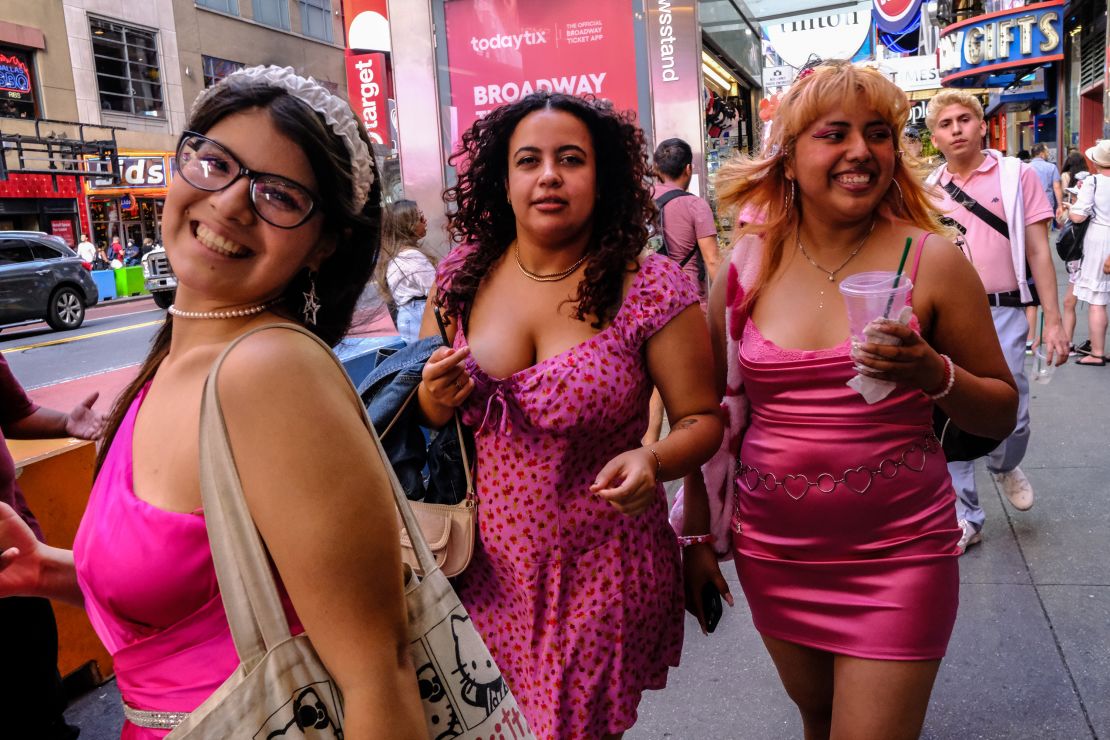
But what goes into creating an era-defining shade? “Color is a language,” said Laurie Pressman, vice president of Pantone. “We gravitate towards color, and our relationship with color oftentimes happens outside of our consciousness.”
The color authority was partly responsible for the world domination of Barbie pink months before the film even premiered. For Valentino’s fall-winter runway in March 2022, Pressman and her team collaborated with Pier Paolo Piccioli, the fashion house’s creative director at the time, for the hue “Pink PP” (colloquially known as “Valentino pink”) — the sole color used in the collection. It became the shade du jour: Florence Pugh made headlines in a sheer tulle Valentino Pink number for the label’s haute couture show in that July; while earlier in the year, not one but three celebrities arrived at the Met Gala dressed in the shade.
“(Piccioli)? wanted this (color) to be a cultural touchstone,” Pressman told CNN in a video interview, adding that it’s “about being bold” and “standing out.” And, as a sister shade to red, she pointed out, it expanded the brand’s legacy with the color Rosso Valentino.
Although Pantone were also the ones who standardized 219C — better known as Barbie pink — in the 1990s, Pressman insists Valentino pink’s serendipitous overlap with the “Barbie” marketing machine was “a complete coincidence.” Plus, the two shades are different, with Barbie pink being “a little bit more neon,” she said.
Building the ‘Bratosphere’
While Barbie pink has a long, storied history, Brat green is fresh out the gates. It was created by design studio Special Offer Inc., who spent months discussing the shade, eventually selecting Brat green from around 500 options, according to founder Brent David Freaney.
“Charli knew exactly what she wanted, probably long before she even engaged with us,” Freaney told CNN in a phone interview. “We spent months just talking about color and color references. ‘What does this shade of green mean versus this shade of green? What’s the connotation?’” While walking around New York City, Freaney would stop to take photos of any green object that might fit in the ‘bratosphere’ — a term coined by Charli XCX herself. “Then I’d take (these pictures) to my computer and use the (Photoshop) eyedropper tool to make that green and present it. Like, ‘I saw this traffic cone outside. What do we think about that?’”
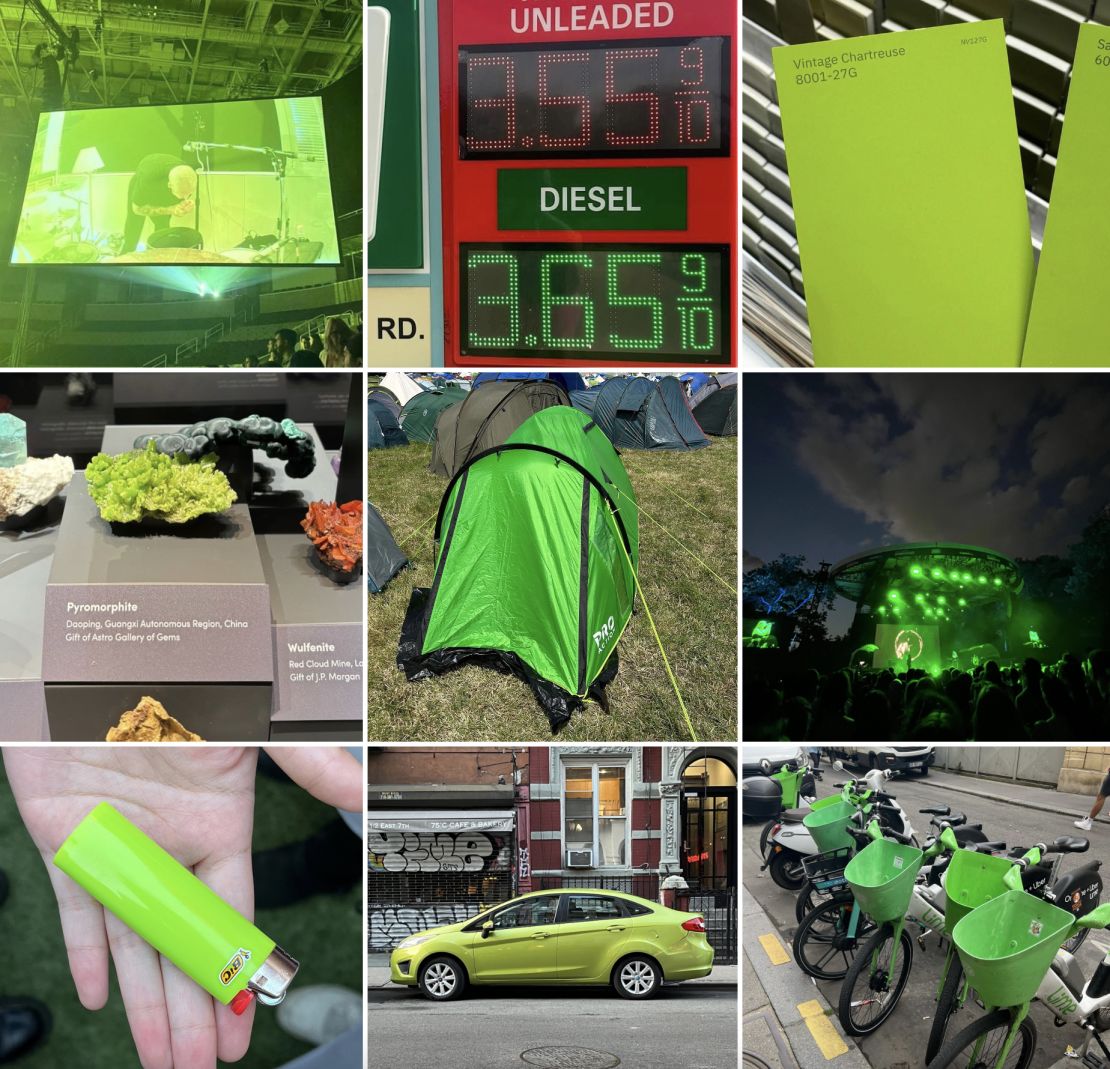
For Yeoman, the science of a summer-stealing color mostly boils down to how a shade performs online and IRL. “If you look at Brat green on a screen, it zings,” she said. “Barbie pink does the same thing. It’s about finding a shade that works both when it’s backlit on a screen and also in real life.”
Freaney says they didn’t want a shade that felt conventional. “We knew we didn’t want a darker green or a mint green,” he told CNN. “We were like, ‘Let’s choose something that feels really off-putting.”
Because of the color’s specificity, spotting it out in the wild — much like Freaney’s research process — has become a surefire way to go viral and add to the bratosphere. Stephanie, a Charli XCX fan based in New York, created the Instagram account @accidentallybrat in June, just after the album’s release, and now receives photo submissions of Brat green sightings from friends and other fans. Her posts include a stack of Lime bikes, an estate sale poster and a pyromorphite mineral in a science museum.
“It’s just so fun,” she told CNN over email. “Every time I’m with a friend walking on the street someone stops to yell, ‘Brat!’ when we see anything green. It’s so iconic and eye-catching — if you see anything online with that color you immediately know what it’s referencing.”
A colorful future
Though Pantone has been quietly creating specific shades for musicians for decades — Pressman has standardized everything from Rolling Stones red to Prince purple, though it’s up to brands if they want to enter into the elusive trademarking process themselves — Pressman thinks both artists and audiences are increasingly paying attention to color.
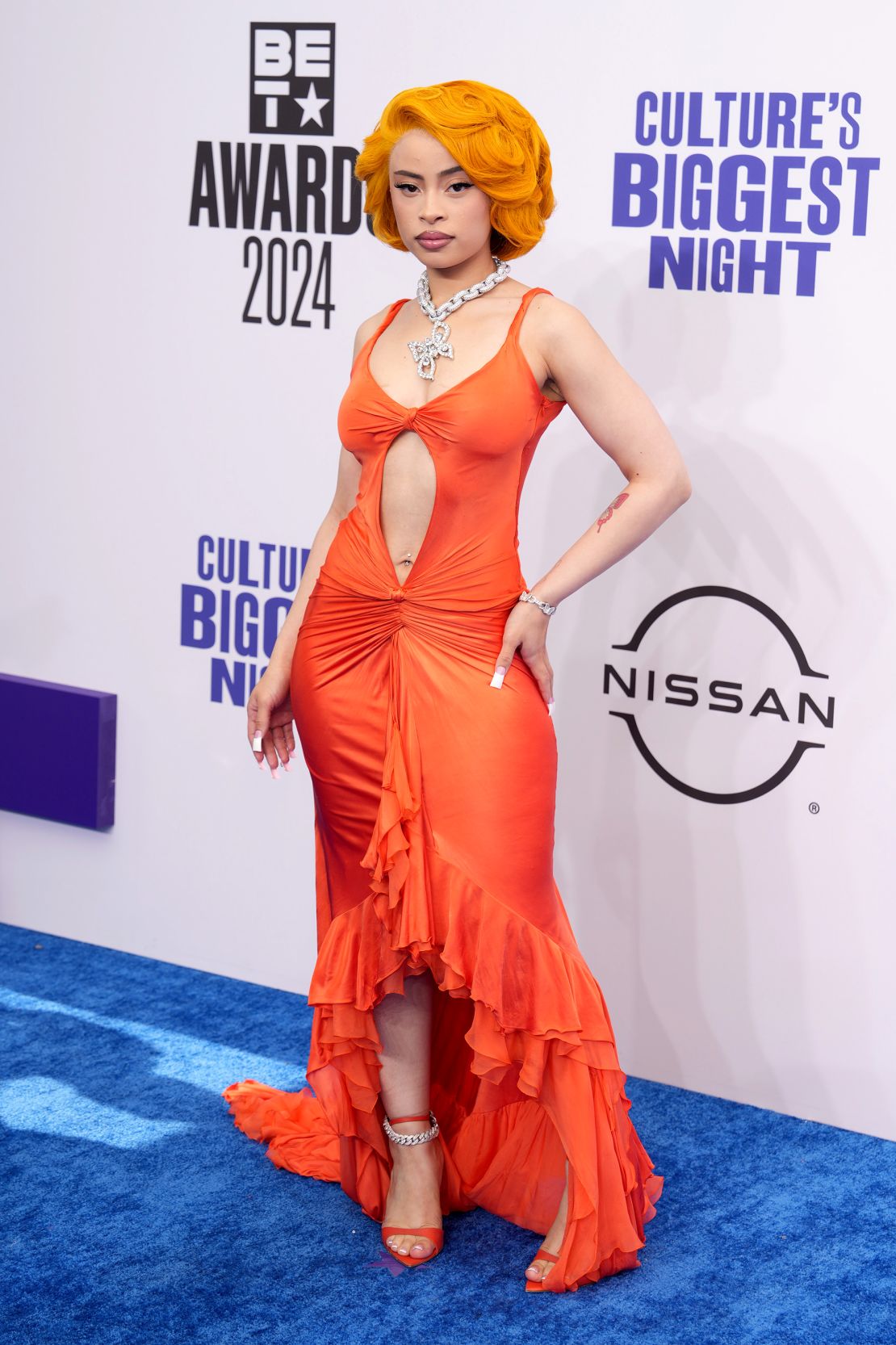
The specific shade of lavender Olivia Rodrgio has worn on several red carpets, including the 2022 Met Gala, is the same hue of her latest album “Guts,” and the color of most of her merchandise. Ice Spice, too, has become synonymous with her mop of fiery orange hair — and often matches her step-and-repeat looks to the shade.?“Some of these very young artists who are really looking to express themselves and are turning to color as one more way to get their message out,” Pressman said. “Which I think is very savvy.”
Brat green might have claimed this summer, but the color wheel will spin again before long. “That’s just the way the design industry works,” said Yeomans, who believes more labels will scramble to brand summer 2025. “Everyone always catches onto a trend, and then everyone tries to do it, but only a handful will actually succeed.”



